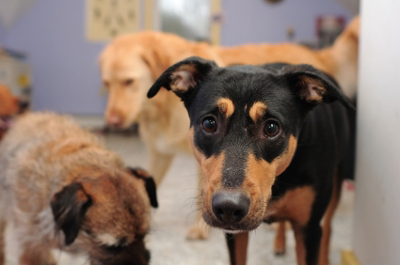Canine Coronavirus
Canine coronavirus is an acute and highly contagious intestinal disease of dogs. The disease causes depression, vomiting, and diarrhea. The symptoms are similar to canine parvovirus; however the disease is less severe and fatalities are rare. Occasionally, very young or weak puppies, as well as older geriatric dogs, become severely dehydrated and die from the disease.
The majority of dogs infected with canine coronavirus are asymptomatic (have no symptoms). These asymptomatic animals are often the source of the virus for healthy, noninfected dogs. Particularly susceptible to the disease are show and field trial animals and dogs that are kenneled (boarded).


Canine coronavirus is transmitted from the feces of infected dogs to noninfected animals via the oral route. Infected animals can shed the virus for several months after clinical symptoms have disappeared. Asymptomatic dogs shed the virus as well. Since canine coronavirus can cause severe vomiting, diarrhea, and dehydration, veterinary care is required. Using laboratory tests, a veterinarian can distinguish between canine coronavirus and parvovirus.
Since the effectiveness of canine coronavirus vaccine is controversial, many hospitals do not use it. Your veterinarian can recommend a prevention strategy that is specific for your pet.

